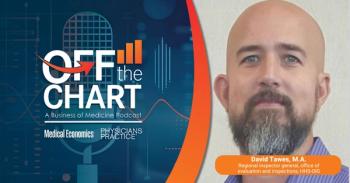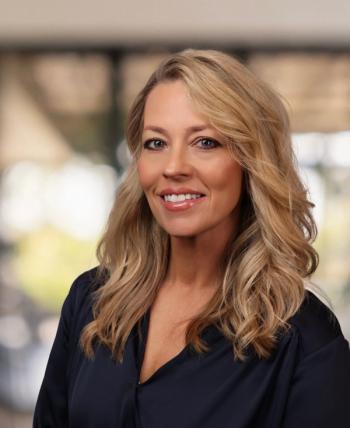
When Religion and Medicine Collide
Spirituality and medicine sometimes interact uncomfortably. Here’s how to be sensitive while meeting your religious patients’ clinical needs.
In a small room in Children’s National Medical Center in Washington, D.C., Motl Brody’s body grew tired. The 12-year-old from Brooklyn, N.Y., had been at the hospital for almost five months being treated for brain cancer, and his family had held a nonstop vigil by his bedside. Already in a coma, Motl’s brain stopped functioning on Nov. 4, 2008, and his team of doctors declared him legally dead. But his family said their faith, Orthodox Judaism, didn’t define death as such and sought a court order to keep him on life support. But in the end, even as the conflict began to draw media attention and before the court made its decision, Motl’s heart stopped beating on its own on Nov. 15, ending the debate.
While religion and medicine don’t always collide so dramatically, the two realms do coexist - and the intersections between them are frequently uncomfortable. Raymond Barfield, associate professor of pediatrics and Christian philosophy at Duke University, recalls a story about a fellow doctor who once found himself in an unexpected and potentially uncomfortable situation.
“This doctor was one of the best pediatric neurologists around and a truly warm and kind-hearted man,” says Barfield. “He was getting ready to treat a child for seizures, had the whole family in his office explaining the treatment, when the grandmother stood up and said, ‘I think I understand everything, doctor, but all I need to know now is whether you’re a Christian.’”
Unfazed, the doctor (who was Jewish) handled the situation gracefully by saying, “Ma’am, I’m as Christian as you need me to be.” Luckily, that answer sufficed.
It’s … complicated
Religion is a deeply emotional and personal topic, and some may argue that a person’s faith and his health are unrelated. No wonder so many physicians find religion a tough subject to broach.
“Religion is hard to talk about because it’s felt so deeply and matters so much. When you talk about an issue you run the risk of disagreeing. And disagreeing about religious beliefs can be painful for a lot of people,” says Farr Curlin, assistant professor of medicine at the University of Chicago Medical Center. “Medicine is a practice that applies science in ways that depend on your moral and spiritual ideas about what it means to be human. There are areas where patients and doctors disagree, or even doctors and doctors disagree how to apply that science.”
According to a 2006 study by Curlin and others, 91 percent of physicians said it was only appropriate to discuss religion with patients if the patient brought it up, and 45 percent said it was never appropriate to talk about their own religious beliefs.
Physicians haven’t been provided much guidance on navigating such a touchy issue. While the AMA requires medical schools to teach students how to at least inquire about a patient’s religion, and more than 80 percent of medical schools address spirituality in their curricula, this training is usually embedded in an ethics or humanities course and is sometimes an elective.
“I would say that the vast majority of people have at least a loose affiliation with a faith, and that most [Americans] would say they are Christian,” muses Barfield. “I would also say that most probably have their decision making affected by this fact, but that they are not necessarily aware of this all the time.”
In the clinical setting this can mean many things. For example, if a patient presents with symptoms of depression, would he be better treated with a prescription or by speaking with a counselor, perhaps one who counsels from the patient’s faith perspective? Or both? Suppose you have a patient whose religion includes observances that incorporate fasting. Now suppose the patient is diabetic, suffers from migraines, or has some other condition for which a regular, consistent eating schedule is part of her health maintenance. You might need to adjust her treatment, right? That’s why you can’t just tell yourself that religious and spiritual matters are none of your business - if your patient’s religious views could complicate her treatment regimen, and you’re unaware of it, she could suffer a serious problem.
You also can’t assume that the patient will raise these issues if you don’t make the first move. “What happens is that the patient doesn’t know they are permitted to go there,” says Richard Payne, a professor of medicine and divinity at Duke University. “We teach students they have a responsibility to have a conversation with their patients.”
Try these techniques to help reduce the discomfort:
Open-ended questions. Ask open-ended questions as part of taking the patient’s history or follow-up that allow her to easily venture into the topic without feeling cornered. For example, “So, Mrs. Jones, I recognize this is a serious illness and you must have thoughts about what this now means in terms of your life and how important things like religion are in your ability to help you cope with this. What do you think?”
Intake forms. If oral histories aren’t an option (or are uncomfortable for either you or the patient), include religion on one of your patient intake forms that new patients fill out. You can also have existing patients fill this out at their next appointment, as you would with any new form. By covering it in the original documentation, you know ahead of time what religion a patient follows (if any) and how it may affect his treatment. Also, update this form yearly - say, as part of an annual physical. Spirituality, after all, is a moving target. What gives a person meaning and fulfillment could change over time even without changing religions.
“It’s like sexual histories that used to be seen as so personal in the ’60s. You don’t just ask if someone is active now and assume they always will be,” says Christina Puchalski, founder of the George Washington Institute of Spirituality and Health. “Same with spirituality. Something may have happened - an illness, an operation - that causes people to rethink these questions.”
Sometimes people find or rediscover religion as a result of an illness.
“People change when they are sick. Illness can cause you to question everything about yourself - sometimes you don’t see yourself as a person anymore. You see yourself as an illness,” Puchalski explains. “But having that sense of self-value that spirituality offers can help transcend an illness. It’s important to incorporate it when you can.”
Taking it further
Puchalski’s institute, which aims to educate doctors about the relationship between medicine and spirituality, has developed a series of questions designed to lead a comfortable conversation with patients about spirituality. Using the acronym FICA, it works like this:
F - Faith and Belief: This is the testing question: Do you consider yourself spiritual or religious? If the patient answers “No,” you can follow up with “What gives your life meaning?” This could open up more information that could help with medical treatment.
I - Importance: This gauges how much of a consideration religion or spirituality is when it comes to healthcare: “What importance does your faith or belief have in your life? What role do your beliefs play in regaining your health?”
C - Community: Do they have local support? “Are you part of a spiritual or religious community?”
A - Address in Care: How does religion affect that patient here and now? “How would you like me, your healthcare provider, to address religion in your healthcare?”
Intake forms and oral history questions are fine for helping you gain a sense of your patient’s spiritual perspective, but these FICA questions help you go deeper. Should you ask such questions of every patient? The Institute of Spirituality and Health says that you should - it may seem unnecessarily intrusive at first blush, but the sequence of the questions is designed to allow the patient to control the path of the conversation, sharing only what he is comfortable with. The key is to ask these questions in a nonjudgmental way that doesn’t threaten the patient’s sense of security. Keep your tone matter-of-fact just as you would if you were asking any other question that might affect a patient’s health.
If they bring it up
What if it’s the patient who wants to talk about religious issues - even, say, your own religious beliefs? Some patients are very comfortable discussing spiritual matters with most people they interact with; someone as important to them as their physician would hardly be the exception. While it’s a good idea to approach each encounter on a case-by-case basis, knowing some options ahead of time can help.
Listen. Develop a sensitive way to acknowledge and understand a patient’s perspective. An old reporter’s trick that can be used in an exam room is to sit back and let the silence grow. Humans are social by nature and will find a way to fill the silence with their thoughts. Emotions surrounding a patient’s health may bring on such a strong reaction that all he may need is for you to be a sounding board.
Pray? Some patients may want you to pray with them. Some physicians don’t mind doing this, but it can make others squirm with discomfort. If you’re in the latter group and find yourself in this position, your best bet is to be a silent participant or observer and refrain from leading the prayer. If, however, a patient requests that you pray out loud for her, you could explain that while you respect her faith, your own spiritual views are private.
“Basically patients want to be heard. If they have strong religious beliefs, they want to know the doctor has some sense of God because it’s comforting to them,” explains Payne.
Explain options and possible outcomes. If a patient’s religion (or a decision based on her religion) could affect her health, it’s your job to make sure she is aware of the possible health ramifications, not to try to change her mind about her religion. Suppose a patient with a mild ear infection declines an antibiotic prescription for religious reasons.
“An ear infection is not a life or death situation. Even though it would benefit the patient, there’s no dramatic affect on health” to decline, says Barfield. Also, make sure your notes reflect that you’ve taken this step and make yourself available for follow-up.
Have a list of local resources. Acquaint yourself with local religious leaders - pastors, priests, rabbis, mullahs - who may be able to provide further assistance for patients who truly are in need. One note: While HIPAA rules don’t allow churches to be notified when someone in their congregation has been hospitalized, a doctor can request a visit if a patient asks for one.
Acknowledge and document. When a patient’s religious beliefs result in a decision that will have a direct affect on his health or mortality or those around him, you need to bolster your efforts. If the patient’s religious beliefs and his health (or that of his child or someone else in his charge) are in direct conflict, however, there is little you can do without seeking a court order. Even then, that step could take weeks or even months, which won’t work in emergency situations. In that case, keep immaculate records of your recommendations and the patient’s responses just in case things turn for the worst.
“A detailed note is the best thing a doctor can do,” confirms Kenneth Levine, a Brookline, Mass.-based attorney specializing in health law. “If they can get a patient to sign off it’s the best. It verifies their decision. If they can’t, document, document, document. Note what happened, who you spoke to, when you spoke to them, what you said, and what they said.”
Be present
While it’s easy to stay in a clinical bubble, sometimes a patient really wants to know that there’s another person in the examination room with her who understands the emotional side of what she’s facing. And, in fact, doctors can sometimes be seen as a particularly safe harbor.
“I have a sense that talking about spiritual concerns to doctors is somehow safer than with a pastor because hopefully we have been trained to be nonjudgmental,” observes Payne. “We hear a lot of personal things and if we’re truly to be professional we have to communicate in a very nonjudgmental way. If a patient is having some doubt, I tend to try to have conversations that deliver the message, ‘You know, God made doctors, too,’ meaning that one of the ways that God acts in the world is He gave us the capacity to develop medicines to ease disease and suffering.”
Kellie Rowden-Racette is a former associate editor with Physicians Practice. She can be reached via
This article originally appeared in the November 2009 issue of Physicians Practice.
Newsletter
Optimize your practice with the Physicians Practice newsletter, offering management pearls, leadership tips, and business strategies tailored for practice administrators and physicians of any specialty.




